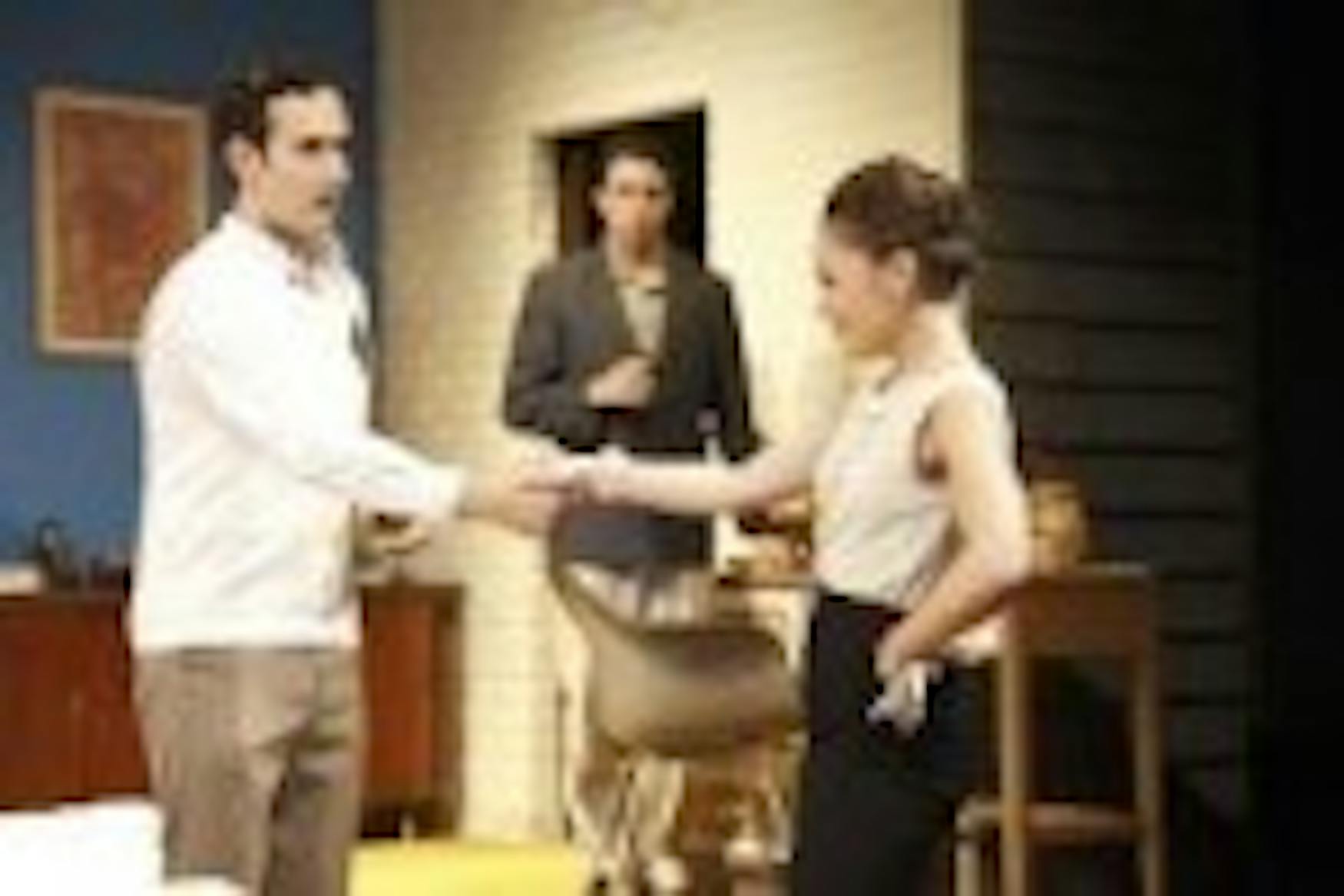BTC's 'Garden' is lush with fakery
Typical is a word that one might reach for as the play Everything in the Garden by Edward Albee starts. I've seen these types of these plays countless times before: Typical people are put in a typical setting with a typical problem plaguing their lives. Usually, typical gags and laughless silences will follow. All my experiences with such examples came from high school. And, in all honesty, a high school show was what I expected from this production by the Brandeis Theater Company. What an ignorant, first-year thing to think. I take the time now to formally apologize to all those involved with this presentation of Albee's subtle but bold work. It ranks as one of the most enjoyable plays I've seen recently-and I've seen many.The setting is a suburban home in the '60s. Everything is very clean and arranged deliberately. It feels more staged than a natural home should be. Nothing ever changes in the interior of the home. As the play progresses one can see how this might lend itself to the main symbol of the play, the combination of the house and the garden outside. The garden is what the neighbors see and therefore what must be kept up, never mind that the family has some money problems and that the wife wants to supplement her husband's meager income by working as a call girl to the privileged. As long as the garden is beautiful, it's all fine. I find it interesting that whereas the world on stage is focused on exteriors, we the viewers can actually see the truth behind the flowers.
What is most intriguing about Garden is that while it is coated with a thick glaze of humor and witty dialogue, the true intellectual and artistic stimulation lies within the revealing asides, the double entendres, the social commentary, the intricately layered symbolism, the incongruous dichotomies and also the significant silences. The beauty is created by the tension that lies beneath the funny. The tension itself is almost tangible and is no small feat accomplished by the sympathetic portrayals of the onstage personas by our own Brandeisian actors.
They are plastic. And fake. And sorely in need of a slap in the face to help them differentiate between priorities and selfish obsession. Perfect. That's the type of person that the actors have to portray, and they do it beautifully. But just like the house itself, there lies a layered character behind the cultivated garden. Jenny, played with great emotional range by Tanya Dougherty (GRAD), is a woman with her heart split in two: She wants to put up a facade for the neighbors while remaining a loving wife and independent woman. Richard, played sensitively by Robert McFadyen (GRAD), is a man who wants an honest and good life but can also be prone to dishonesty and jealousy. And Mrs. Toothe, played with impeccable Englishness by McCaela Donovan (GRAD), is a hard-edged businesswoman who takes no prisoners but also suffers from a painful and difficult past.
But by far the most interesting and pitiable character in Garden is Jack, played masterfully and frankly by Ben Rosenblatt (GRAD). He is sleazy and impetuous, a drunk and a homewrecker in the most literal sense of the word. However, he is the most honest and scrupulous man in the play: He is the only one of the whole crooked bunch that came into his fortune in an honest and legal way, he plays backgammon with the elderly and he's the only one sincerely kind to Jenny and Richard's son, Roger (Aaron Arbiter '10). Yet his neighbors look down on him because he likes to drink. It is funny how in this staged world the drunken obnoxious sleazeball is the most respectable character in terms of morality. He is true to himself and owns up to his actual house and not his garden. Perhaps inebriation is the savior here in that it takes you out of that state of "bad faith." Jack is a perfect example of those incongruities that make this play so interesting to watch. It's genuine mindplay.
Given these elements, Everything in the Garden is a highly accessible experience through both incredible and hilarious circumstances with doses of philosophy and pathos on the side. Its run continues in the Laurie Theater of the Spingold Theater Center this Thursday through Sunday, Oct. 15 to 18, at 8 p.m. Thursday through Saturday and at 2 p.m. on Saturday and Sunday.



Please note All comments are eligible for publication in The Justice.